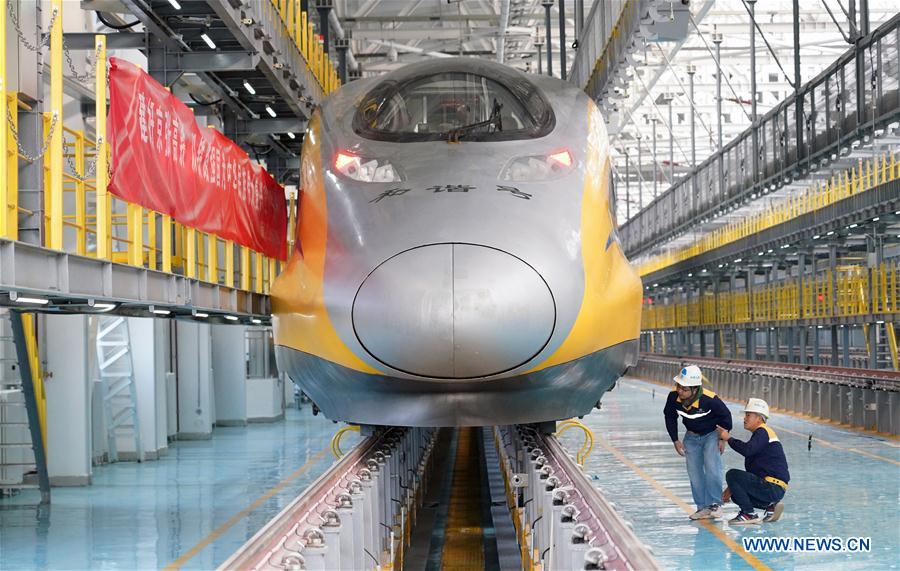Automatic high-speed railway to open soon
By YANG WANLI | China Daily | Updated: 2019-10-26 07:15

The Beijing-Zhangjiakou high-speed railway is expected to go into operation by the end of the year, enabling people to take the automatic trains to go skiing, a senior railway engineer said.
The 174-kilometer railway, which will shorten the travel time between Beijing and Zhangjiakou in Hebei province to 50 minutes from the current three hours or more, will be an essential piece of the transportation system for the Beijing 2022 Winter Olympic Games.
The railway will be the smartest one in the country, supported by 67 smart technology projects, including autopilot and auto-dispatching systems, Mo Zhisong, chief engineer of China State Railway Group's high-speed train control system project, said at a news conference on Friday.
According to previous reports, railway authorities said that the train can automatically start, run between stations, adjust its timing according to the schedule, accurately stop at a station, and open and close its doors.
Mo said tests of the train on the Beijing-Shenyang high-speed railway last year have shown that the smart system not only improved operational safety and comfort, but enhanced the on-time performance and reduced energy costs.
Trains on the line will have a maximum speed of 350 kilometers per hour, according to Zhang Bo, researcher with China Academy of Railway Sciences Corporation.
"To meet the needs of the media during the competition, we've designed special train compartments for journalists. And for the athletes, an area for snowboards and other ski equipment will be also available on the train," he said.
The railway authority said earlier that a variety of intelligent robots will be used at high-speed rail stations to guide passengers and help them carry their baggage. In addition, cloud computing and big data will be adopted to accelerate the development of transportation in the area.
The completion of the Beijing-Zhangjiakou line is expected to integrate development of Beijing, Tianjin and Hebei province.
The line will also connect with the Zhangjiakou-Hohhot high-speed railway, cutting travel time from Beijing to Hohhot, Inner Mongolia autonomous region, from nine to three hours.
























